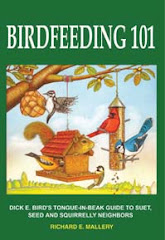
Recent reports of sick or dead birds at backyard feeders has prompted the Washington Department of Fish and Wildlife to recommend that people temporarily discontinue bird feeding, or take extra steps to maintain feeders.Laboratory analysis of bird carcasses has confirmed salmonellosis, a common and usually fatal bird disease caused by the salmonella bacteria, said WDFW veterinarian Kristin Mansfield."Salmonellosis is probably the most common avian disease at feeders in Washington," Mansfield said in a news release. "The disease afflicts species such as finches, grosbeaks and pine siskins that flock together in large numbers at feeders and transmit the disease through droppings."The first indication of the disease is often a seemingly tame bird on or near a feeder, Mansfield said."The birds become very lethargic, fluff out their feathers, and are easy to approach," she said, "but there is very little people can do to treat them."About four dozen reports of dead birds have been received over the past several weeks involving pine siskins, goldfinches and purple finches in both eastern and western Washington. Carcasses of purple finches and pine siskins were sent to a Washington State University laboratory for testing that confirmed the disease.It's possible, although uncommon, for people to be become sick from the salmonella bacteria through direct contact with infected birds, bird droppings, or through pet cats that catch sick birds. People who handle birds, bird feeders or bird baths should wear gloves and wash their hands thoroughly afterwards, Mansfield said.She advised stopping backyard bird feeding for at least a few weeks, if not for the remainder of the summer, to encourage birds to disperse and forage naturally."Birds use natural food sources year-round, even while using bird feeding stations," she said.




No comments:
Post a Comment